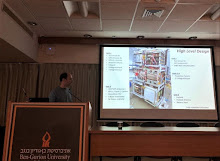Special Session on "Neurocomputation and Cognition"
2020 IEEE International Joint Conference on Neural Networks - World Congress on Computational Intelligence (IJCNN-WCCI)
July 19-24 2020, Glasgow, UK
Important Dates:
Paper submission: 15 January 2020 30 January 2020 (Extended)
Notification of acceptance: 15 March 2020
The field of neurocomputation is concerned with the possibility of computation in computers by following the paradigm and analysis of computation that occurs in neurons and the brain. In recent years this has resulted in breakthroughs in pattern recognition, machine learning theory, clustering, associative memory and fault tolerant computation.
Consequently, the precision resulting from the computational and mathematical viewpoint has led to insights helping to clarify aspects of one of the ultimate human research endeavors: understanding the manner in which human thought emerges from the organization of the human brain.
A session on this topic was presented in Rio de Janeiro IJCNN 2018 and was very successful. Extended papers developed from this session have been submitted to a special issue of the veteran journal Annals of Mathematics and Artificial Intelligence and this issue is scheduled to appear early in 2020.
We will again look into the possibility of another special issue with an established veteran journal.
Topics:
The special session invites submissions in any of the following (and related) areas:
- Neurocomputation techniques as related to human cognitive issues
- Neurocomputational Models of Embodied Natural Language Processing
- Understanding brain information processing underlying real-world tasks.
- Validation of cognitive models using machine learning methods
- Computational Biomarkers for Diseases
- Computational Biomarkers for Cognitive Activity
- Neurocomputational and Architectural Models of Creativity
- Use of Neurocomputation and Machine Learning Tools to identify Physiological Features
- Biologically Inspired Neural Computing
- Analysis of Time Dependent Information in cognition
Submission:
The special session invites submissions in any of the following (and related) areas:
- Neurocomputation techniques as related to human cognitive issues
- Neurocomputational Models of Embodied Natural Language Processing
- Understanding brain information processing underlying real-world tasks.
- Validation of cognitive models using machine learning methods
- Computational Biomarkers for Diseases
- Computational Biomarkers for Cognitive Activity
- Neurocomputational and Architectural Models of Creativity
- Use of Neurocomputation and Machine Learning Tools to identify Physiological Features
- Biologically Inspired Neural Computing
- Analysis of Time Dependent Information in cognition
Submission:
https://ieee-cis.org/
Under "Main research topic*" select “S51. Neurocomputation and Cognition”
Under "Main research topic*" select “S51. Neurocomputation and Cognition”
More details at:
Organizers:
Prof. Larry M. Manevitz – Director Neuro-computation Laboratory, Caesarea Rothschild Institute and Department of Computer Science, U. Haifa, Haifa, Israel and Department of Computer Science, Ariel University, Israel (corresponding organizer) manevitz@cs.haifa.ac.il
Dr. Alex Frid – Laboratory of Clinical Neurophysiology, Rappaport Faculty of Medicine, The Technion (Israel Institute of Technology), Haifa, Israel, alex.frid@gmail.com
Dr. Hananel Hazan – Levin Lab, Department of Biology, Tufts University, Boston, USA, hananel@hazan.org.il, personal site
Prof. Bernardete Ribeiro – Department of Computer Science, Coimbra University, Coimbra, Portugal, bribeiro@dei.uc.pt, personal site



